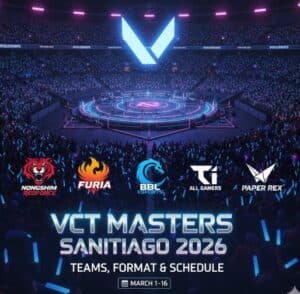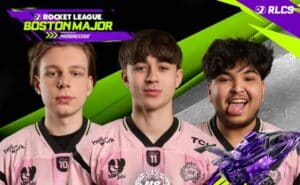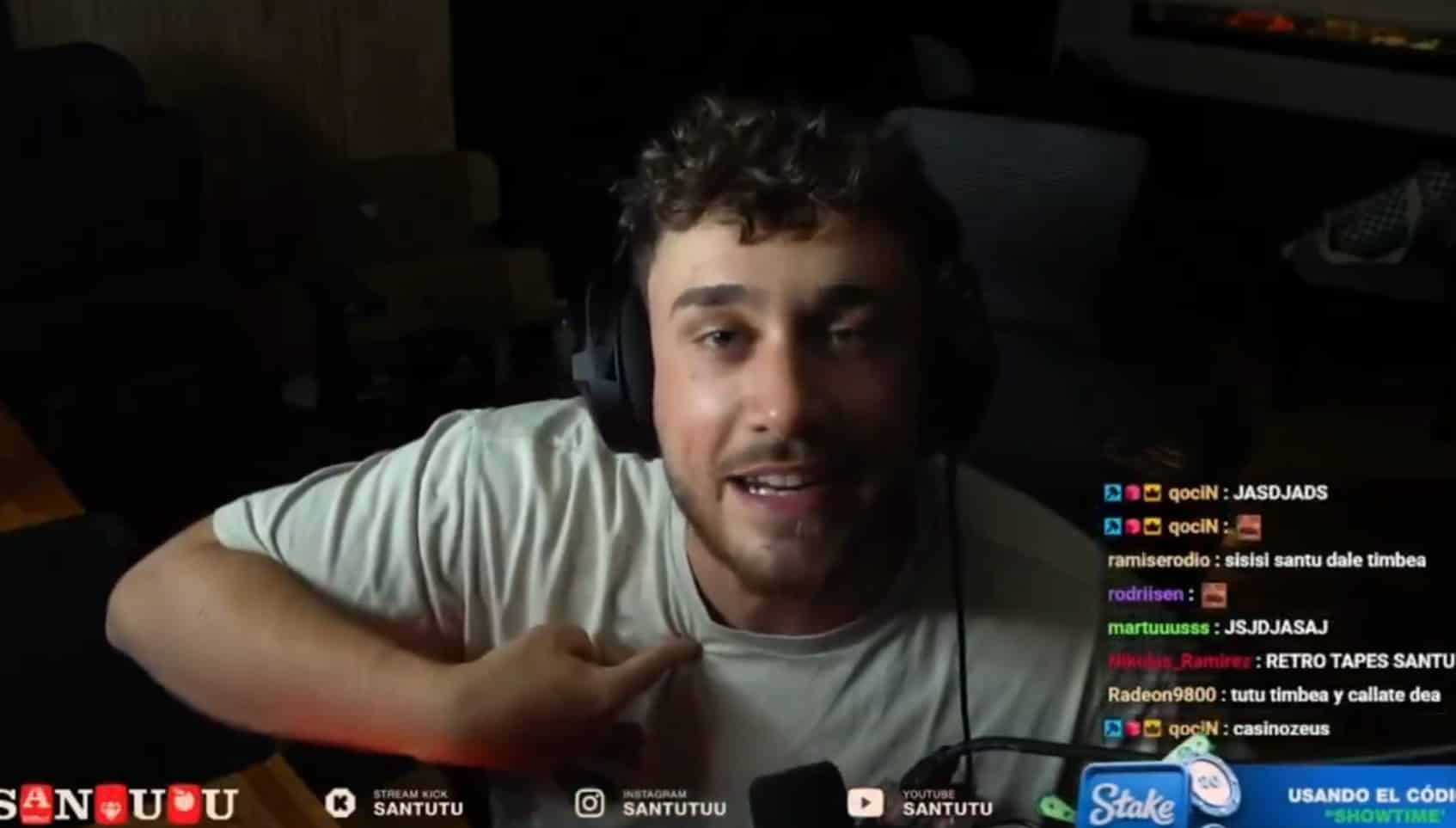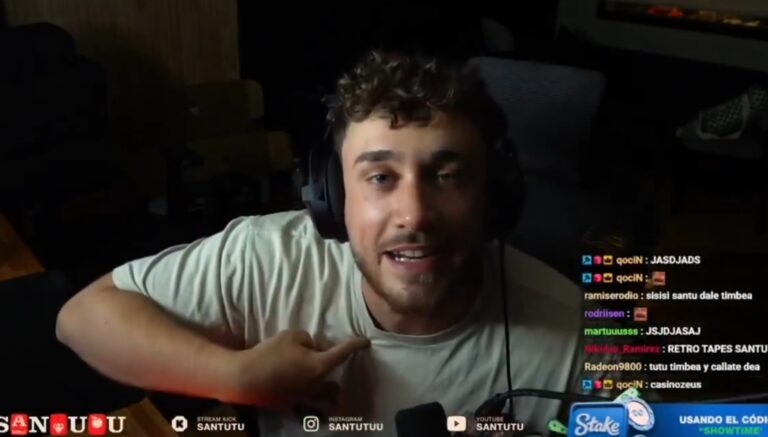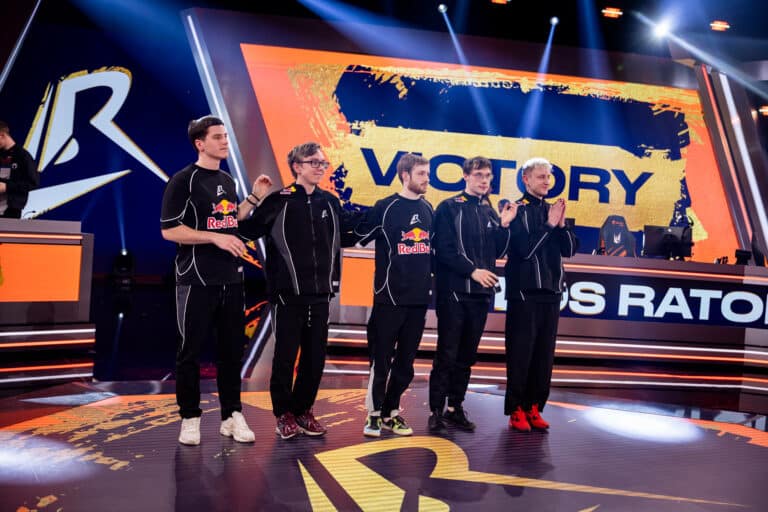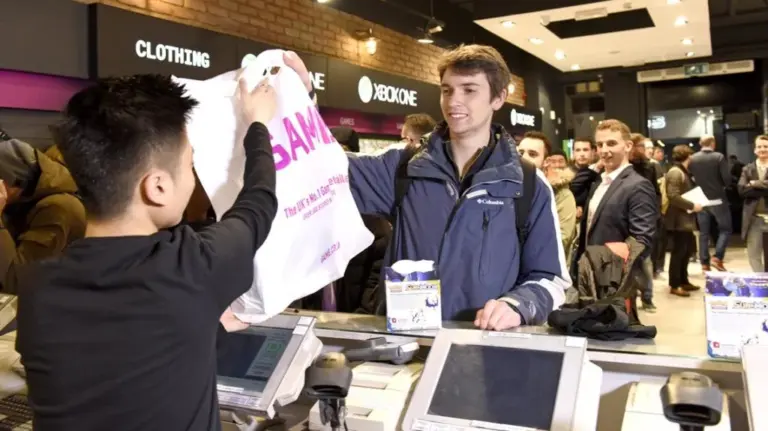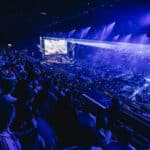What is the EWC Club Championship?
Hannah Marie ZT, Senior Editor
Last Updated: 20/08/2025
All Esports World Cup tournaments contribute to the EWC Club Championship. The Club Championship boasts a $7,000,000 prize, and every team competing is a participant.
However, most fans and viewers care little about the EWC Club Championship, nor know much about how the system works. ENUK explains what the EWC Club Championship is, why it matters to organisations, and why most people don’t seem to care:
How does the EWC Club Championship leaderboard work?
The Esports World Cup features 25 events in total, covering a wide range of esports titles. Each esports event has an individual qualification system, and all teams must qualify on their own merit.
Overarching these individual esports events is the EWC Club Championship.
Every individual esports event has Club Championship points attached to it. Winning an esports title event awards an organisation 1,000 points. Coming in second place grants 750 points, and third place grants 500.
The number of points awarded continued to decrease until 8th place. Any placement below 8th awards no points.
Organisations are placed in the EWC Club Championship leaderboard based on their points accumulated through the tournament. As long as the organisation with the most points on the leaderboard has won at least one title, they will win the Club Championship title.
$27 million. No second chances. Your performance counts.
— Esports World Cup (@EWC_EN) June 16, 2025
Here’s how the #EWC25 Club Championship Prize Pool gets divided. 📊 pic.twitter.com/YPo4Nf54Qi
An organisation’s success rate is not accounted for. If an esports team only enters three esports titles, but wins two of them and comes second in the third, they will still rank below a team that entered ten esports titles, won one, came third in one, and ranked 4th-8th place in three others.
This means that the more esports titles an organisation enters, the more likely they are to win the Club Championship.
Team Falcons won the 2024 EWC Club Championship, and are favourites to win this year on esports betting sites alongside last year’s runner-up, Team Liquid.
The EWCF, the Club Support Program, and Club Championship
To fully understand the significance of the Club Championship in esports, it is also essential to understand the workings of the EWCF (Esports World Cup Foundation) Club Support Program.
The EWCF Club Support Program
The Club Program was launched in February 2024, ahead of the first Esports World Cup event. Organisations that are selected for the Club Program receive an annual six-figure payout to support their operations.
Organisations must then attempt to qualify for Esports World Cup events and participate in the attached EWC Club Championship for additional financial reward.
Teams that finished in the top eight of the 2024 Club Championship are automatically accepted into the 2025 Club Program. All 32 other teams must apply for a place in the Club Program.
New blood meets returning powerhouses.
— Esports World Cup (@EWC_EN) March 17, 2025
It's time to unveil the official lineup of 2025's EWCF Club Partner Program! pic.twitter.com/4wUG2vYM9F
Applications are primarily weighted on the following:
“All Clubs were selected through a rigorous evaluation process that reviewed nearly 200 applications. This included assessing their competitive track record in the Club Championship in 2024, their potential across multiple games, social media presence, fan engagement, and their strategic plans for activating their global esports audience.”
By their own words, this means that the selection process focuses primarily on the organisations’ performances and their community reach.
However, the Terms and Conditions of participation clarify that “the Foundation may reject the Club’s application for the Program at any time for any reason in its sole and absolute discretion.”
Therefore, the EWCF can prevent any organisation from participating for undisclosed reasons.
This is worth remembering, as the need for high-profile performances and community influence is highly relevant to the Saudi Arabian sportswashing debate.
How does the Club Program feed into the Club Championship?
The EWCF Club Program technically does not have any sway over the success of organisations competing in the Esports World Cup, and therefore the EWC Club Championship.
However, inclusion in the Club Program influences organisations’ chances of success. In the top ten teams on the Club Championship leaderboard (as of August 19th), only one organisation is not a Club Program member.
Does the EWC Club Championship represent success, or how much money is in the bank?
As determined when discussing how the EWC Club Championship works, the leaderboard system is heavily skewed to favour teams that sign more teams and compete in more esports titles.
This is demonstrated when examining the 2025 EWC Club Championship leaderboard in the final week of the competition.
Team Falcons entered the final week of competition at the top of the leaderboard. They were also the winners in 2024. This year, they have fielded teams in 22 different esports titles, the most from any organisation.
Week 7 of #EWC2025 is here and so is the final @stc_ksa Club Championship Leaderboard update before the finish line! 📊
— Esports World Cup (@EWC_EN) August 18, 2025
Team Falcons currently lead the pack. The title is within reach, but the battle isn't over yet. ⚔️ pic.twitter.com/oynicfigR9
In fact, the top five teams on the Club Championship leaderboard all have over ten teams competing in more than ten titles. Team Liquid, Team Vitality, Twisted Minds, and Virtus.pro have 13, 11, 14, and 18, respectively.
Number of teams and financial demands
Signing esports players costs money. This is an indisputable fact in the industry. The more esports titles an organisation wants to compete in, the more players they need to sign.
It is common knowledge that Team Falcons has the most significant budget compared to other esports organisations.
ENUK’s report on Team Falcons’ Counter-Strike buyout rumours included a reminder that the organisation’s former CEO and current Board Member, Faisal Alaql, is an active member of the Saudi Arabian government. The organisation also maintains close sponsorship ties with companies owned by the Saudi National Bank.
Most teams are unable to purchase such a volume of players, and therefore face far worse odds to win the Club Championship by default.
An exemplification of Team Falcons’ ability to invest money where other teams cannot is their Overwatch team.
Team Falcons’ only esports title win at the 2025 Esports World Cup is in Overwatch. The esports scene has seen a significant decline in recent years. This decline means that many esports organisations cannot afford to invest as much money into Overwatch, as there are fewer profitable returns.
Nevertheless, the Falcons can spare extra cash to invest.
Twisted Minds, the esports organisation currently in fourth position on the leaderboard, also have significant Saudi Arabian financial influence. The organisation is sponsored by Riyadh Season, a government-backed Saudi Arabian entertainment company backed by the Saudi Public Investment Fund.
#SaudiArabia’s top esports teams have continued to make their mark on the global stage at the Esports World Cup 2025, with Team Falcons and Twisted Minds delivering standout victories in front of sold-out crowds at Boulevard Riyadh City.https://t.co/UN0tUgjO9F
— Arab News Japan (@ArabNewsjp) August 13, 2025
Why do fans not seem to care about the Club Championship title?
Those who have followed Esports World Cup discourse online may have noticed that viewers care very little about the EWC Club Championship. Most posts that you see regarding the Club Championship leaderboard are from organisations in the top ten, Team Falcons fans, or Team Falcons themselves.
Observations of fan attitudes in Counter-Strike
An example of the disparity in opinion of the EWC Club Championship between Saudi Arabian organisations and esports fans is the Team Falcons Counter-Strike jersey.
Team Falcons’ Counter-Strike team has been endlessly mocked over the star on their jersey. This is because, in Counter-Strike esports, jersey stars are traditionally used to indicate CS Majors won.
Therefore, Team Vitality’s jersey currently features two stars for their victories in the Paris and Austin Majors.
Here is where Team Falcons has caused friction with some CS fans. They feature a star on their jersey. However, they have never won a Counter-Strike Major. Their jersey star is self-awarded after the organisation’s 2024 EWC Club Championship victory.
I don’t think there’s a funnier thing in esports than Team Falcons putting a stupid ass star on their jerseys for winning the EWC as an organization.
— john 🦅 (@WombatCS) July 29, 2025
Literally nobody gives a fuck and it makes you look like clowns when your CS team has it when they haven’t won shit.
EWC’s identity crisis: Are there enough hardcore organisation fans to outweigh the esports title fans?
Many of the EWC esports titles have integrated sections of their competitive ecosystem into the Esports World Cup event.
For example, the ALGS (Apex Legends Global Series) Midseason Playoffs were held as a part of the Esports World Cup. This decision forced Midseason Playoffs-qualified Apex Legends pro players to participate in the Esports World Cup if they wanted a chance to guarantee qualification for the ALGS Championship (a non-EWC LAN).
Controversially, this decision led to LGBTQ+ Apex pro Hambino missing crucial Championship Points.
The pro decided not to compete in the tournament due to personal safety concerns relating to their LGBTQ+ identity. The move was significant in reigniting Esports World Cup controversy in the ALGS ecosystem.
This style of integration makes it challenging for the Esports World Cup to distinguish between viewers. Who tunes in to the online broadcasts to watch the overall tournament, and who is simply there to keep up with their favourite esports scene?
Wild variation in viewership figures across esports titles suggests that most viewers simply engage with their favourite esports titles, not the event overall. By proxy, this also demonstrates that most viewers are not watching to follow progress in the EWC Club Championship.
Overall, the EWC Club Championship is a system primarily designed to drive investment from organisations rather than to engage fans.
As a result, organisations with pre-existing larger budgets are rewarded. Those who can invest the most in signing more rosters have significantly elevated odds of opening the door to increasing their budgets by $7 million USD.
For most organisations, the door to $7 million was never really opened for them in the first place.
Hannah Marie ZT, Senior Editor
Hannah is a journalist specialising in the esports, gaming, and technology sectors. Working for outlets such as Dot Esports, Esports Insider, and of course ENUK, she has developed a love for wider esports, Apex Legends, and advocating for women's esports initiatives. You may have seen her at various esports and gaming events, including ALGS LANs, ESI London, EGX, and watch parties.
Stay Updated with the Latest News
Get the most important stories delivered straight to your Google News feed — timely and reliable





From breaking news and in-depth match analysis to exclusive interviews and behind-the-scenes content, we bring you the stories that shape the esports scene.
Monthly Visitors
User Satisfaction
Years experience
Latest Featured Post
